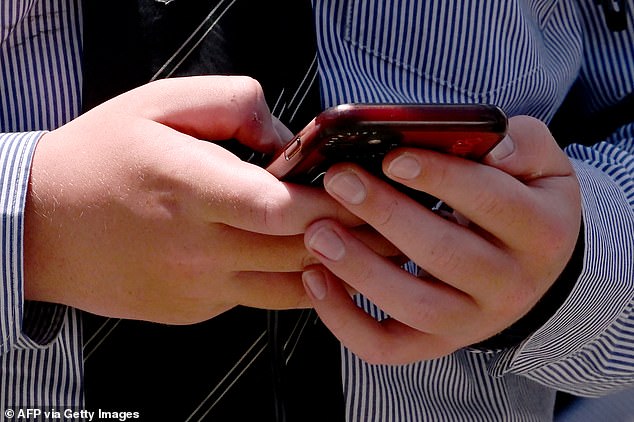New Zealand is considering a potential ban on children under 16 from using social media in order to shield them from harmful content, cyberbullying, and exploitation, according to the country’s Prime Minister.
The proposed measures put forward by Christopher Luxon suggest that social media platforms will be required to ensure users are at least 16 years old. Failure to comply could result in fines of up to NZ$2 million, approximately £900,000.
The draft bill, drawn up by National Party MP Catherine Wedd, is modelled on strict legislation recently passed by Australia.
Luxon emphasized the need for this action by stating, ‘It’s time that New Zealand acknowledged that, for all the good things that come from social media, it’s not always a safe place for our young people.’
‘It’s time we put the onus on these platforms to protect vulnerable children from harmful content, cyberbullying, and exploitation.
‘Parents are constantly telling us that they are really worried about the impact that social media is having on their children.
‘And they say they are really struggling to manage access to social media.’
Wedd added: ‘As a mother of four children I feel very strongly that families and parents should be better supported when it comes to overseeing their children’s online exposure.’

Christopher Luxon has unveiled proposals that would force social media companies to verify users were at least 16 years old or risk fines

The draft laws, drawn up by National Party MP Catherine Wedd, were modelled on strict legislation recently passed by Australia

Luxon said: ‘It’s time we put the onus on these platforms to protect vulnerable children from harmful content, cyberbullying, and exploitation’
The proposals follow the nation’s decision to ban children from using mobile phones while at school – a policy designed to turn around the country’s plummeting literacy rates.
The move appears fairly popular domestically, with a 1News Verian poll in December finding that more than two-thirds of New Zealanders supported restricting social media access for under-16s.
To become law, the bill will either need the support of the National Party’s two other coalition partners, ACT and New Zealand First, or opposition parties.
But ACT leader David Seymour said a ‘hastily drafted’ plan was not the solution to problems caused by social media.
Officials are yet to solve basic questions surrounding the laws, such as how the ban will be policed.
‘I’m really worried about social media’s effect, but for every problem there’s a solution that is simple, neat, and wrong,’ he said.
‘Just slapping on a ban hastily drafted won’t solve the real problem. The real problem has to involve parents, the solution proposed by National doesn’t.
‘What I’d like to see is the people worried about this, the educational psychologists, the social media companies themselves, everybody come before a select committee, really thrash it out, and get a solution that is technologically feasible.’
Meanwhile, Labour’s Chris Hipkins, the leader of the opposition, told Radio New Zealand he was open to the idea.

ACT leader David Seymour said a ‘hastily drafted’ plan was not the solution to problems caused by social media

But Labour’s Chris Hipkins, the leader of the opposition, told Radio New Zealand he was open to the idea

The move appears fairly popular domestically, with a 1News Verian poll in December finding that more than two-thirds of New Zealanders supported restricting social media access for under-16s
‘This is a conversation we need to have as a country. The Australians have been courageous and tackled it. I think New Zealand needs to do the same.’
The Prime Minister said he was encouraged by the positive comments made by Hipkins and suggested he may be able to garner enough support across the House to pass it.
‘It’s not a political issue, it’s a New Zealand issue,’ Luxon claimed.
Australia passed landmark laws in November restricting under-16s from social media – one of the world’s toughest crackdowns on popular sites such as Facebook, Instagram and X.
The ban is set to come into effect by December.









